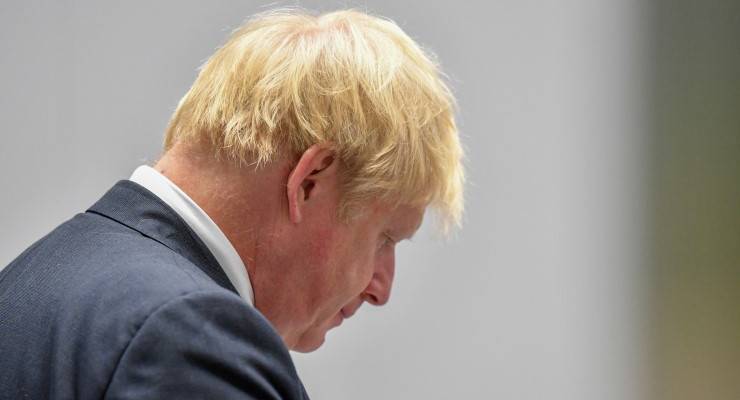
Is the United Kingdom in the grip of a constitutional crisis? So it’s been said, following the collapse of Prime Minister Boris Johnson’s plan to cancel parliament and deliver Brexit on October 31, deal or no deal. Actually, no.
Since the Brexit vote in 2016, it has claimed two (soon possibly three) Conservative prime ministers as the UK parliament has tried to navigate towards the exit without triggering a disaster.
Boris promised to crash through and has so far succeeded in losing his parliamentary majority, 20 MPs, most of his cabinet and every single vote in parliament. Since parliament wouldn’t bend to his will he devised a fiendish plot: prorogue parliament for five weeks so it couldn’t make more laws and prevent Brexit from finally landing its punch.
So Boris rang her majesty, on hols at Balmoral, and advised her to prorogue parliament from sometime between September 9 and 12, through to October 14. She acquiesced, as constitutional convention dictates. Historically, the period of proroguing has been around four days, rarely more than 10. This one was going to be 35 days.
Various court challenges culminated in a unanimous judgment by 11 judges of the UK Supreme Court on Tuesday. In summary, the court said “parliament has not been prorogued”.
The claims of constitutional crisis come from Boris and his mates insisting that the court has totally messed up the delicate balance of powers held by the various branches of government: legislative (parliament), executive (the crown and its government, led by the prime minister), and judicial (the courts). The power to prorogue is a prerogative power of the crown; it sits above the reach of the other branches and is “non-justiciable”. That is, the courts can’t intervene.
Rubbish, said the Supreme Court. For two reasons: first, certainly the Queen still has some prerogative powers as residual hangovers of the monarch’s former absolute sovereignty, and proroguing parliament is one of them. In practice, she is obliged to do as the Prime Minister advises, but the fiction of the Crown still exists. Nevertheless, prerogative powers are part of the common law, not gifts from god (Charles I disagreed and look how that worked out for him). The common law is well within the purview of the courts.
Secondly, and most importantly, the court invoked “the principle of parliamentary sovereignty: that laws enacted by the crown in parliament are the supreme form of law in our legal system, with which everyone, including the government, must comply”. That is, Boris, the pecking order is parliament then executive, with the judicial branch there to ensure nobody forgets who’s in charge. That was the point of the Glorious Revolution of 1688, when the foundations of the UK’s modern constitutional structure were laid.
The point is that while the Queen can still prorogue parliament for a few days here and there, it is not an unlimited power, and somewhere there is a line. In this instance she (or rather Boris) overstepped. The result is that her order was invalid, and parliament was not prorogued at all.
Relevance to Australia? Funny you should ask.
In trying to find the right balance between an unwritten power that is recognised but barely defined, and the ability of the courts to step in and preserve the practical institutions of democracy (in this case, allowing parliament to do the job for which it was elected), the Supreme Court said that it’s the UK’s (unwritten) constitution that tells it where to find that line.
By contrast, the Australian Constitution is in writing. However — and of course — no attempt to fully prescribe in a document how the institutions of state are to function in practice could succeed. The grey areas are many.
We have the same three branches of government and the same principle of separation of powers — we even have the same Queen. What the UK court said would apply equally here. An existing example of the same principle — that the constitution regulates the exercise of powers even when it doesn’t say so in words — is the implied freedom of political communication that our constitution doesn’t mention, but the High Court has found between its lines.
As the court said, its decision to invalidate Boris’ cunning plan was not an attack on the separation of powers, but a necessary intervention to protect it. The illegitimate assault on constitutionality was Boris’ work alone.
Did his action have the effect of frustrating the constitutional role of parliament in holding the government to account? Of course it did. There was no good reason for Boris to advise the Queen to prorogue parliament for so long, and so his advice was unlawful.
The remaining question is: should Boris resign? Of course he should.








Poor Bozo. Must come as quite a shock to his sense of entitlement that His jolly, bolly, Bullingdon Club rules don’t cover Westminster and the rest of His realm? ……. Pass the caviar and lark’s tongues canapés.